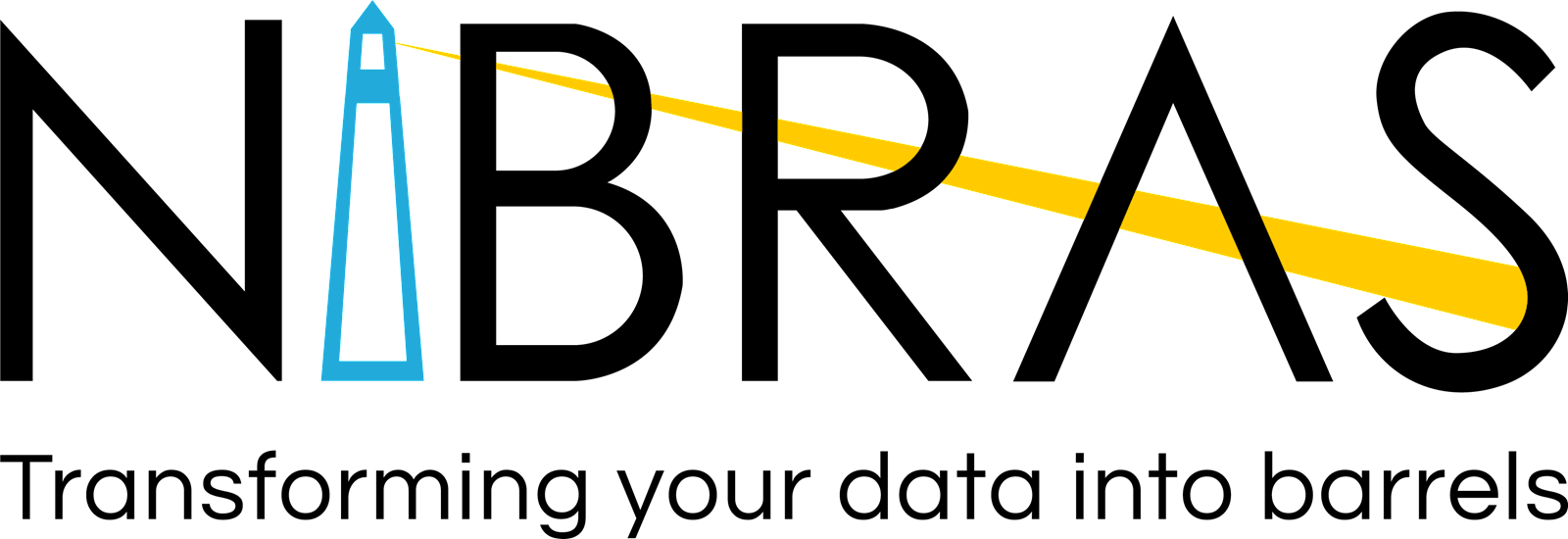I got introduced to the wonderful world of coding in 10th grade. My new friend Assim had bought a Casio programmable calculator and showed me what 10 lines of code in BASIC on an 16Kb machine could do. It was love at first byte. The summer of 1987 was when our final year grades were going to be announced; and when all our futures were going to be determined, or so we thought. Then the scholarships were announced, and there was only one spot for a B.Sc. in computer science in the US. Assim and I both had our hearts set on it, but he had scored 1.8% higher in the GED exams. I was quite disheartened but had to be rational, so I went for my second choice: a PDO scholarship for a B.Sc. in Chemistry. Little did I know that that was the best decision I could have made for my career; because otherwise I would not have been involved in Nibras, a digital innovation contributing 5% extra production from PDO, or 1% of Oman’s GDP.
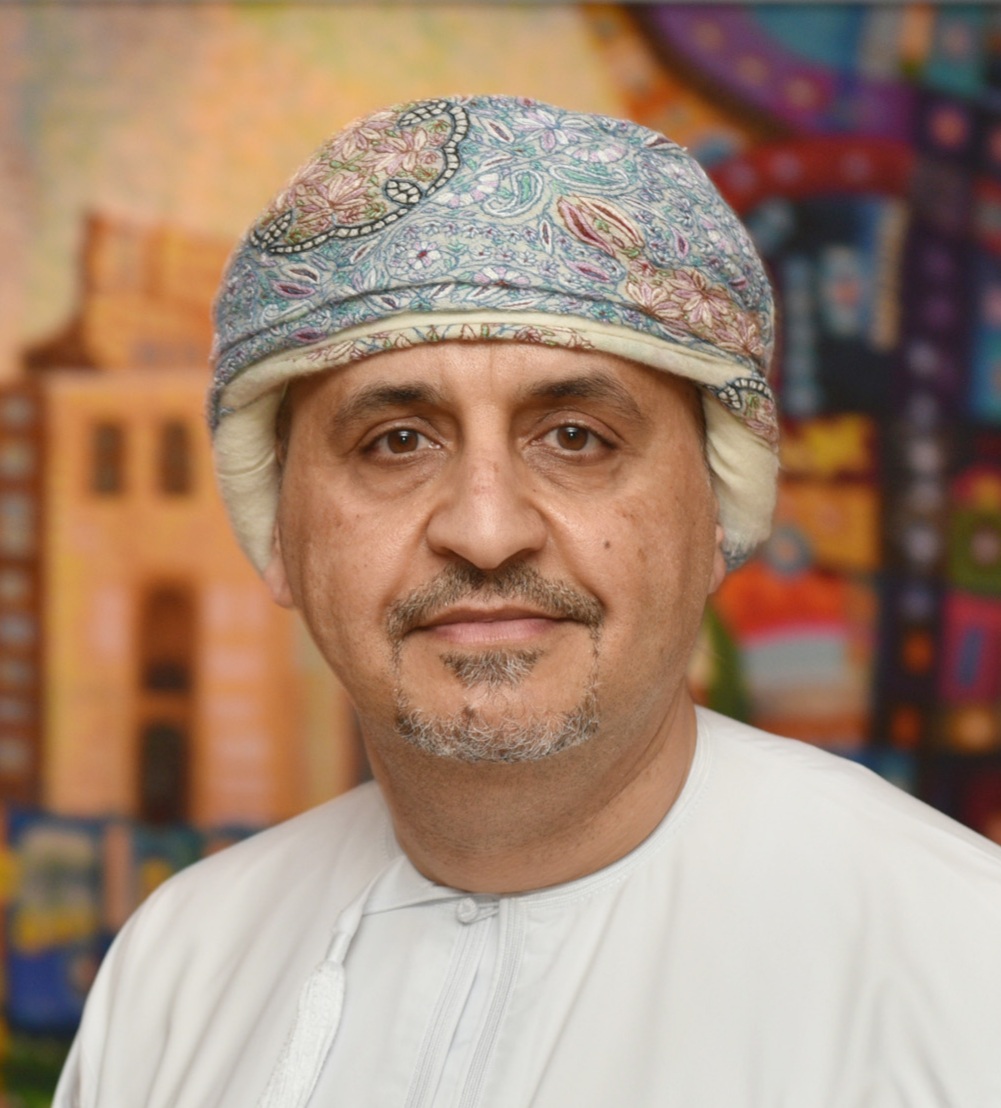
My fascination with coding continued throughout my academic years. My B.Sc. graduation project and both my Master’s and Ph.D. theses were computer programs addressing scientific or engineering problems, and that turned out to be excellent preparation for my time in PDO. It was in PDO that I realized the huge potential of simple computer programs in solving complex technical problems, increasing the efficiency of staff and enabling faster and better business decisions. I was clearly not the best coder in PDO, nor the best engineer, but my technical education and understanding for coding made me one of few that can translate the language of technical and business problems into a language that computer programmers could understand. Not just a literal translation but a translation of the true essence, and that was going to be the way I could best serve PDO and Oman.
In 2006 I joined the Fahud team, the oldest petroleum field in Oman. At the time, establishing that a well was performing optimally required us to manually access 4 or 5 systems. This used to consume 10 minutes per well; and 8 times out of 10 it was a complete waste of time; as most wells were optimal and there was no action to be taken. This was a significant waste of engineering and operational staff time, so I learned visual BASIC; and with encouragement of my team lead I built macros in an Excel spreadsheet that automatically accessed the necessary data and flagged only the wells that required our attention. We called the Excel tool “the Fahud Observer”. Our rationale was: “you get the news on Oman from the 'Oman Observer' and the news on Fahud from the 'Fahud Observer'". It took some time for others to adopt the Observer, a lesson that will become even more significant later in the story, but in the summer of 2007 all of Fahud came around and we unlocked huge value. The same 10 minutes we used to analyze a single well were now all that was required to analyze 660 wells, saving 25% of engineering and operations staff time; and in the process generating 1% extra production from a field that was producing 10% of Oman’s production. This was the birth of EBS (Exception Based Surveillance) in PDO, and little did we know that we had started a revolution!
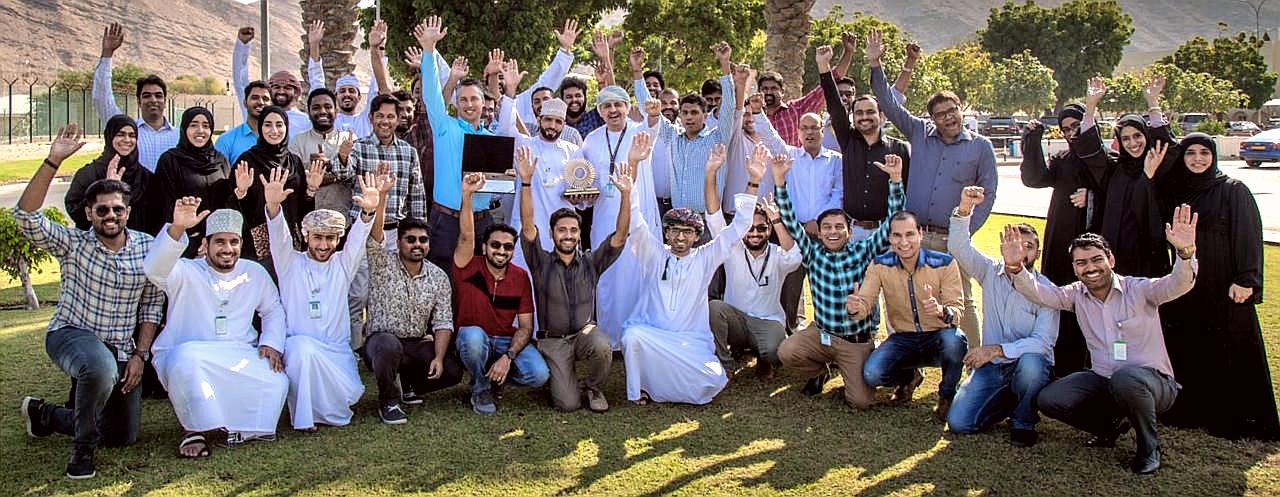
The “Observer” was a hit; and all other PDO asset teams wanted one. Obviously, it didn’t make sense to build numerous Excel spreadsheets; so in 2008, PDO embarked on building “Nibras”: a web portal to replicate the EBS functionalities of the Observer, in addition to other functionalities. Nibras in Arabic means light, and it was designed to shed a light on where PDO staff time would deliver the most value. In 2010 Nibras 1.0 was launched across half of PDO assets and ushered in the beginning of corporate digital transformation in PDO. There was only one problem, in 2012 we found that no one outside Fahud was using Nibras! This was a shock and a huge learning.
Utilizing the recently adopted Lean methodology we went back to the assets that were screaming for the “Observer” to try to understand why they were not using Nibras: a technically robust, easy-to-use, web-based platform. The response was quite unexpected. They told us that since the solution was built by the experts it was in fact designed for the experts: the alarms were too many and too complex. Rather than help them do their existing work, they added to it; and in the usual polite but firm Omani way they asked us to go away. This became the biggest learning in our transformation journey. What we realised was that, despite the name, the biggest challenges in “Digital” transformation are not technical, but rather human and organizational adoption. That the “observer” worked because it was built for the people, by the people. Armed with our growing understanding of Lean, we built Nibras 2.0 (the Lean version) where the alarms were designed to help the average engineer and operator manage their wells more easily and in less time. Continuing with the Lean approach, we also introduced standard procedures (SOPs) to process each alarm and a dashboard to get managers involved in driving and supporting the transformation. The results were mind-blowing! In just 5 months, the number of Nibras users jumped from 65 to 350.
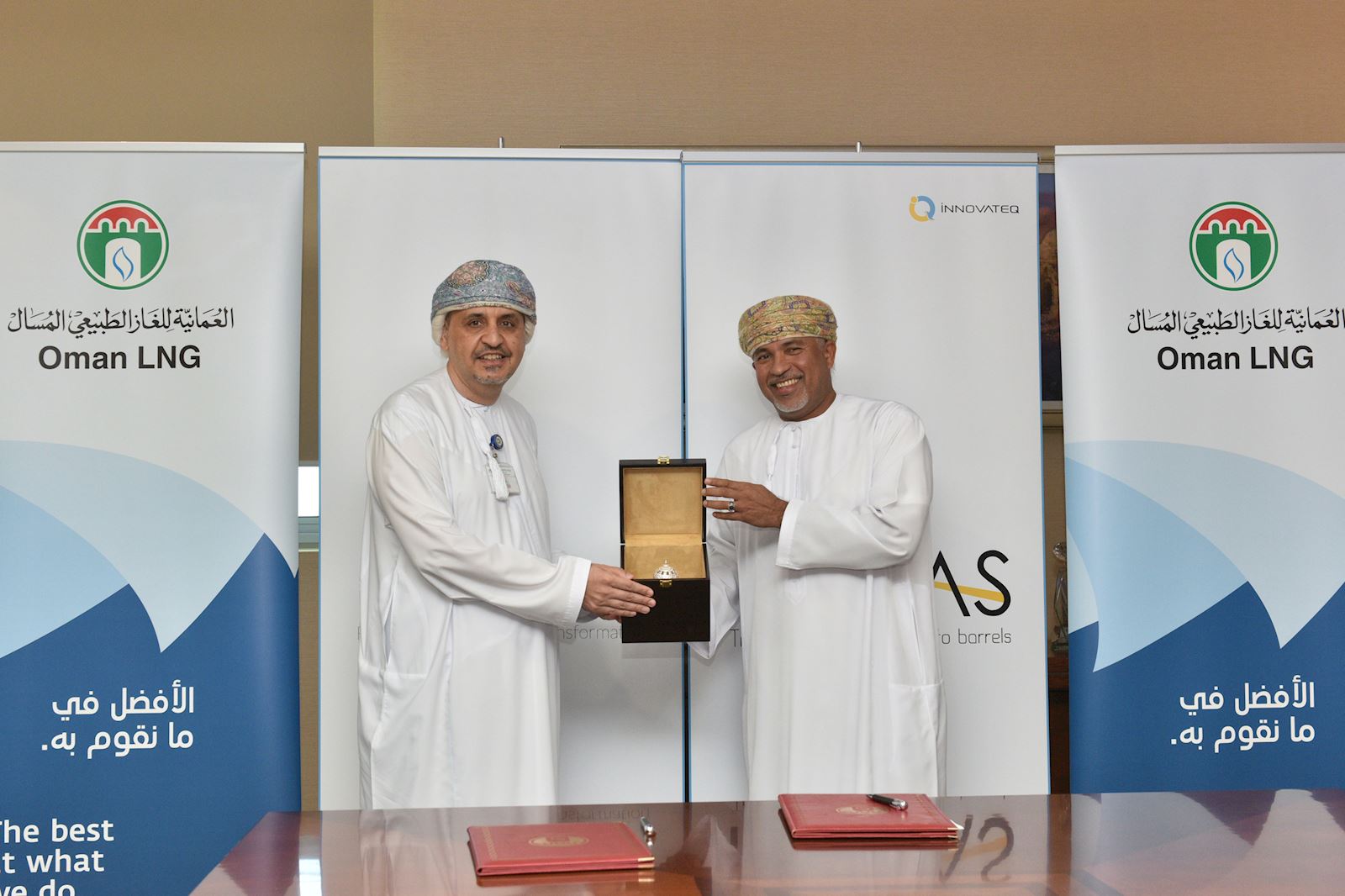
With that huge success, I knew that we were on to something, and that the success came from using the Lean approach in capturing the input of the field engineers and operators into Nibras. The obvious next step was to expand this approach to all components and all PDO fields. This required wider collaboration, so under the leadership of PDO’s Chief Petroleum Engineer, Dr. Ali Al Gheithy, I teamed up with the Chief Architect of Nibras, Wim Sevaes, and, starting in 2015, we significantly expanded the use of this Lean-Nibras approach: conducting scores of Lean Kaizens designed to capture the input of the relevant people in PDO on the management of all aspects of petroleum fields. The result was Nibras 3.0: the full Digital Transformation version. In essence, Nibras became the way we encapsulated the knowledge and experience of hundreds of PDO staff into a digital solution. It allowed us to expand the use of Nibras from 3 well-types to all 12 well-types in PDO; and then expand that further to the management of underground hydrocarbon reservoirs. Later, my Lean counterpart in PDO Operations, Salim Al Busaidi, lead the expansion of the use of Lean-Nibras to surface equipment. This made Nibras the nervous system of PDO: used by over 1,900 users from 17 disciplines to manage 120 fields, producing through 8,000 wells and 1,000 pieces of surface equipment. That value generated from Nibras in PDO grew tremendously: saving PDO staff over 40% of their time and generating at least 5% extra production from PDO fields, which is equivalent to 3% of Oman’s production, or 1% of the national GDP.
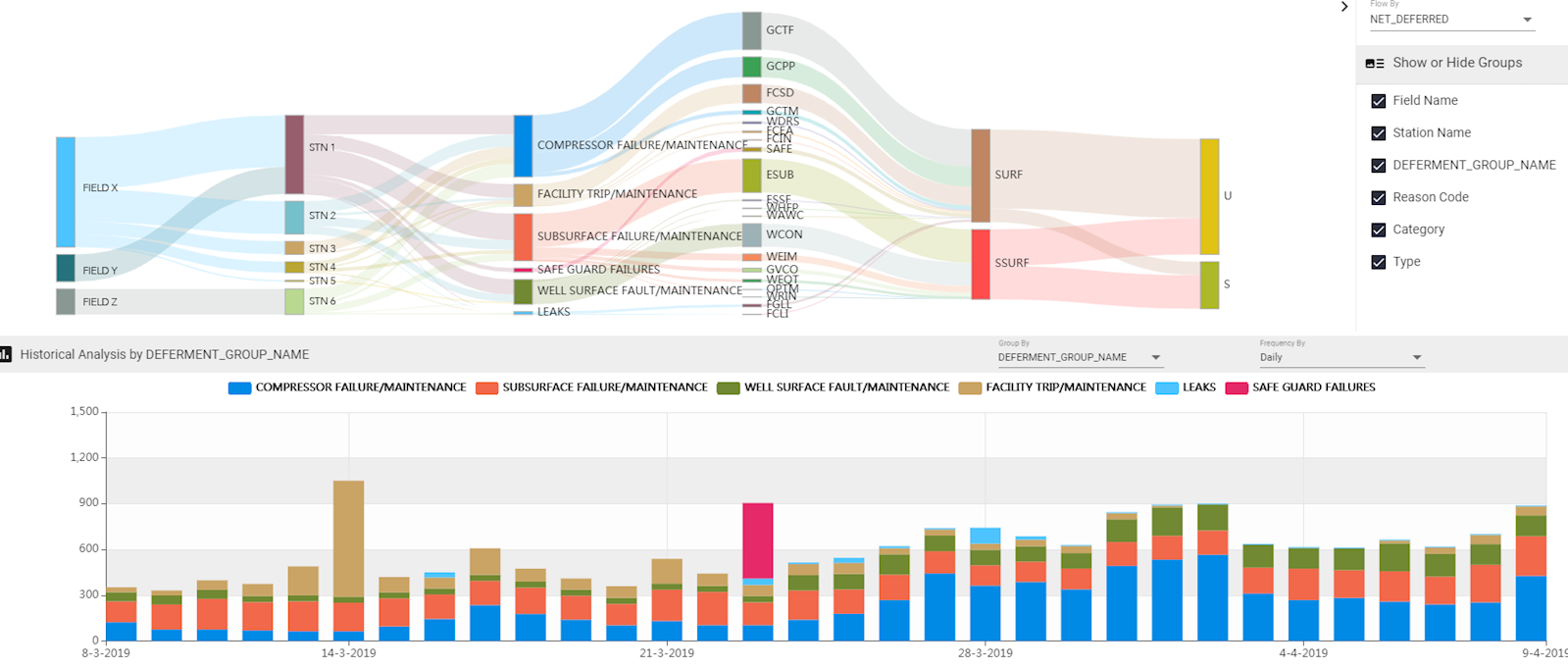
Given the huge value Nibras was generating in PDO and the uniqueness of this 100% Omani digital innovation in the market, the leaders of PDO along with those from the MOG decided to commercialize Nibras. I was honoured to be entrusted with leading this effort, but it was not and easy decision as it meant that I would have to leave PDO, an employer who, over 30 years, had taught me everything I knew. 2018 saw the establishment of iNNOVATEQ, a 100% Omani company funded with investment by TANMIA and IDO Investments (2 semi-government Omani investment/VC powerhouses). iNNOVATEQ was created with one objective: the commercialisation of Nibras with an aim to maximise the ICV (In Country Value) generated from Nibras for Oman. iNNOVATEQ went live in 2019, taking over the Nibras scope in PDO. In that year, we also secured our first contract outside PDO with the Kazakhstan operator KPO. In our first year we also won the prestigious 2019 ADIPEC (Abu Dhabi International Petroleum Exhibition and Conference) “Digital Transformation Project of the Year”. In 2020 iNNOVTAEQ launched Nibras NX, the next generation and commercial version of Nibras that will enable us to grow globally and hopefully become an upstream industry standard one day. In November, we signed an MOU with Oman LNG exploring the application of Nibras to the Downstream industry; with an aim to go beyond Oil & Gas in future years.
There have been countless people in PDO, iNNOVATEQ and beyond who have contributed to the success of Nibras. I am just glad that my wish to get a scholarship to study Computer Science after high-school was never granted as otherwise, I would not have been a part of this amazing Omani success story.
Dr Riyadh Moosa
